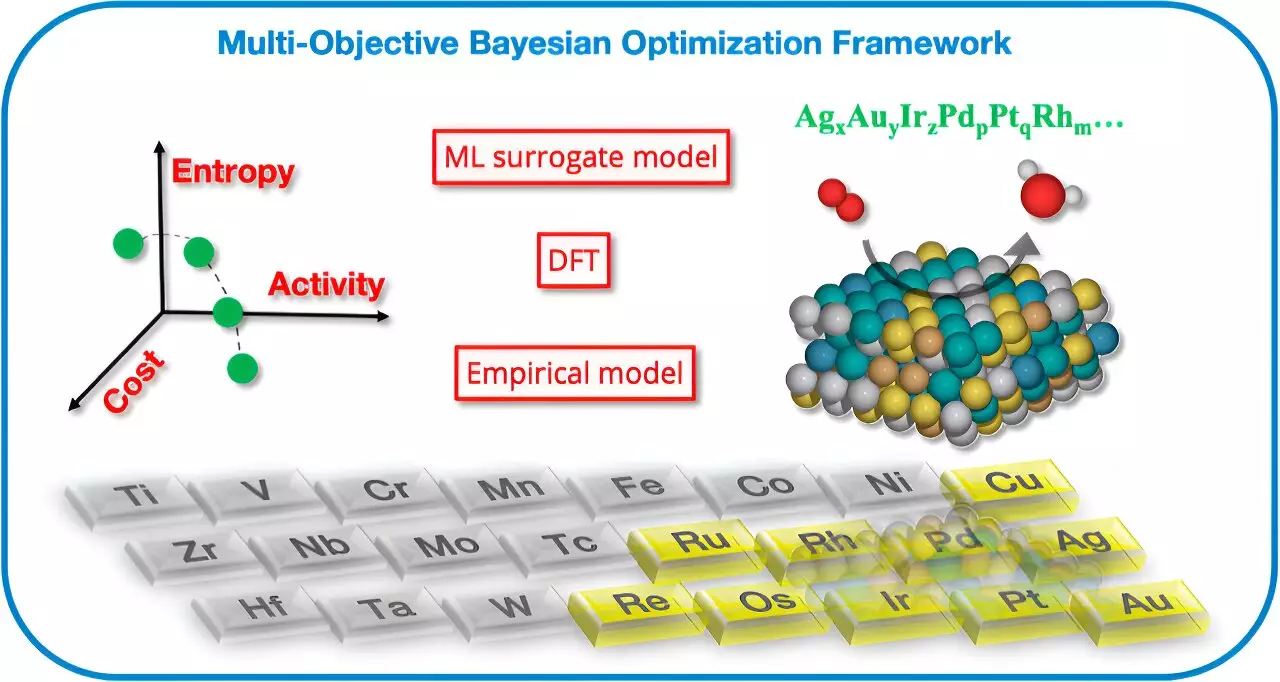Prof Dr. Johannes Margraf and his team of scientists have unveiled a groundbreaking method to enhance the efficiency of electrocatalysts. Through the utilization of simulations and artificial intelligence, they have developed a cutting-edge computer program capable of optimizing multiple properties of the catalyst simultaneously. This innovative approach has been recently documented in the Journal of the American Chemical Society.
High entropy alloys (HEAs) have emerged as a promising category of materials for electrocatalysis. Unlike traditional metal catalysts, HEAs are composed of a blend of numerous elements, resulting in a highly intricate structure. This complexity suggests that HEAs may possess superior catalytic attributes in electrolyzers and fuel cells. However, determining the ideal elemental composition for a specific application has proven to be a formidable challenge for researchers.
While prior research has predominantly concentrated on enhancing catalytic activity, Prof Dr. Margraf and his team have devised an algorithm capable of enhancing multiple properties of the catalyst concurrently. By employing simulations and artificial intelligence, the researchers from the University of Bayreuth and the Fritz Haber Institute in Berlin have successfully identified numerous new HEAs that offer a spectrum of trade-offs between various properties.
The algorithm was specifically evaluated in the context of oxygen reduction in fuel cells, where expensive platinum is conventionally utilized as a catalyst. Remarkably, the researchers uncovered catalysts that exhibit comparable levels of activity to platinum but at a significantly lower cost – merely 10% in comparison. Moreover, they pinpointed catalysts that are 2.5 times more active than platinum, yet at a similar cost.
Although the theoretical projections put forth by the researchers hold immense promise, further validation through practical experiments is imperative. The next phase of this research involves conducting comprehensive experimental tests to verify the efficacy of the newly identified HEAs. By bridging the gap between theory and practice, Prof Dr. Margraf and his team aim to revolutionize the landscape of electrocatalysis.



Leave a Reply